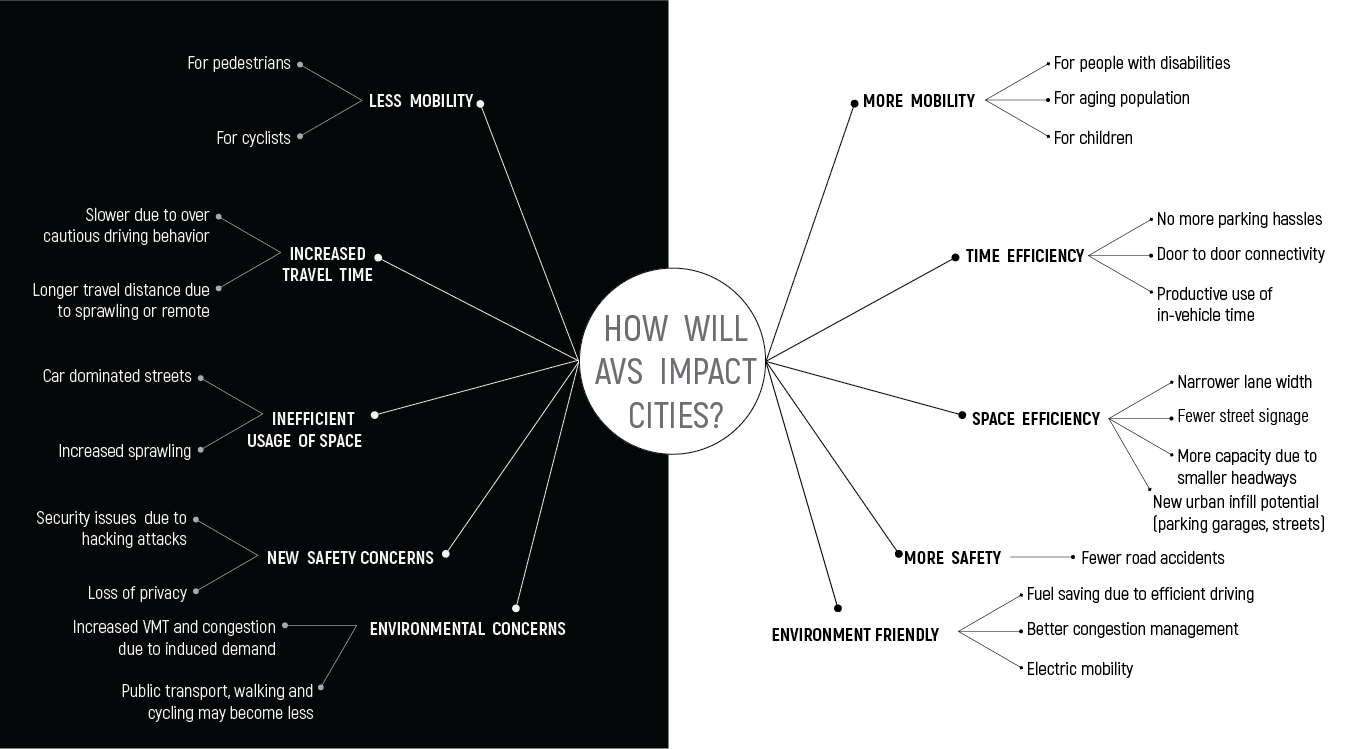Planning for Autonomous Vehicles
Feb 2017 - Jan 2020
Understanding and evaluating impact of Autonomous Vehicles on Urban form and Transport Supply in Singapore

In land-scarce Singapore, population growth and the rising intensity of development have continued to put pressure on the already limited land resource. Autonomous Vehicles (AV) have garnered a lot of interest in recent years as an emerging innovation that could potentially relieve some of this pressure. Driverless technology may facilitate more efficient use of road space by reducing the need for parking space, , lowering traffic congestion, and reducing overall reliance on privately owned cars, eventually paving the way towards a “car-lite” future.
The Engaging Mobility team has embarked upon a collaborative research project with MIT SMART, Singapore-ETH Centre’s Future Cities Laboratory (FCL), and the National University of Singapore (NUS) to evaluate the feasibility of AV policies and investigate their land and transport implications. The multi-disciplinary team will explore innovative urban design and planning strategies for optimal AV integration, by developing multiple scenarios and examining their impacts and associated trade-offs.
The study will focus on the deployment of AVs in both greenfield and infill/brownfield study areas and the development of suitable urban design and AV operation schemes for implementation in both urban contexts. Using overarching scenarios, the team will devise a sketch simulation where AVs are deployed across the entire island.
MATSim and SimMobility—two state-of-the-art agent-based simulation platforms of FCL and SMART Future Urban Mobility —will be linked through a shared data sandbox framework in this study. Urban plans developed for the different scenarios and study areas will undergo an iterative design-simulation-design process, using feedback from spatial analysis and finally evaluated using agent-based simulation.
The project brings together strong expertise from the various entities in autonomous vehicles, urban planning, spatial analysis, transportation simulation, and optimisation of electrification, and applies them in a study on AV tailored for Singapore’s unique high-density tropical urban environment.